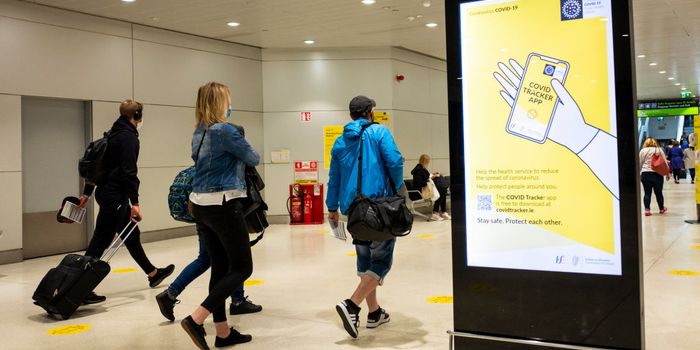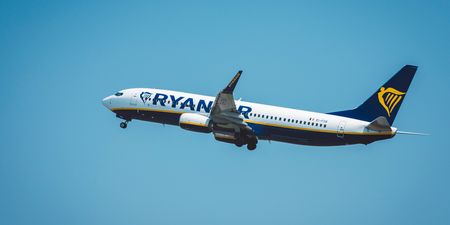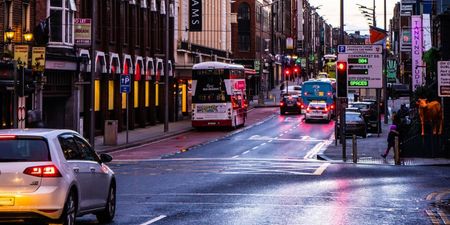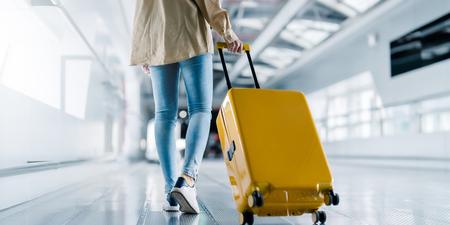The new system will replace the ‘Green List’ to determine where in Europe Irish people are permitted to travel to.
Member States of the European Union have agreed on a new system to determine the countries in EU deemed safe to travel to based on information relating to the impact of Covid-19 across the continent.
A proposal for a traffic light system has been under consideration since early last month and on Tuesday (13 October), it was announced that Member States of the EU had reached an agreement on how to put it into practise.
The traffic light system will be based on a common map with colour codes based on common criteria produced by the European Centre for Disease Control (ECDC). Individual Member States will be responsible for providing the necessary data so the map can be updated on a weekly basis with accurate information on the epidemiological situation in the EU and its regions.
The EU has also called on individual Member States to ensure that citizens are given clear and timely information about what they must do and which restrictions are in force.
Individual Member States can still decide what restrictive measures they apply in relation to testing procedures and quarantine measures. As part of the agreement, Member States agreed on the mutual recognition of tests, and the EU has committed to working with Member States on better coordination of testing and quarantine requirements.
Colour codes will be applied to individual Member States based on the criteria below:
Green
In a 14-day period:
Less than 4% positive tests over the previous week and fewer than 25 cases in 100,000 people.
Orange
In a 14-day period:
4% or more positive tests over the previous week but fewer than 50 cases in 100,000 people
OR
Less than 4% positive tests over the previous week but between 25 and 150 cases in 100,000 people
Red
In a 14-day period:
4% or more positive tests in the previous week and 50 or more cases in 100,000 people
OR
More than 150 cases per 100,000 people
Grey
Not enough information to assess the criteria, e.g. testing rate 300 or less per 100,000 people
An orange status currently applies to Ireland, which allows visitors from an EU country or from Norway, Switzerland, Iceland and Liechtenstein to visit the country, but with limitations.
A green status currently applies to Bulgaria, Croatia, France, Luxembourg, Poland, Portugal, Spain and Sweden.
Hungary is the only country to which a red status currently applies.
You can check out the map and the status of individual countries here. A factsheet with some Frequently Asked Questions is available here.
Furthermore, following the first review under the recommendation on the gradual lifting of the temporary restrictions on non-essential travel into the EU, an updated list of countries for which travel restrictions should be lifted has been issued.
This list will continue to be reviewed and, as the case may be, updated every two weeks. Currently, EU Member States have been advised to gradually lift travel restrictions at the external borders for residents of the following countries:
- Australia
- Canada
- Georgia
- Japan
- New Zealand
- Rwanda
- South Korea
- Thailand
- Tunisia
- Uruguay
- China, subject to confirmation of reciprocity
- Residents of Andorra, Monaco, San Marino and the Vatican should be considered as EU residents for the purpose of this recommendation.
“We welcome this agreement to bring more order to a currently confusing situation,” a statement from the EU Commission read.
“The coming together of Member States sends a strong signal to citizens and is a clear example of the EU acting where it absolutely should. We have learned our lessons: we will not surmount the crisis by unilaterally closing borders, but by working together.”
“For the millions of citizens with an essential reason to travel, be it for important family reasons, for their livelihoods, or to ensure that we receive the goods we need, today’s agreement will also be a welcome improvement to a currently precarious situation,” the statement added.
“No quarantine measures should be applied in these cases.
“Our strength as a Union is when we act as one, to protect our common rights and freedoms and the health of our citizens. Today’s agreement is a good example of this.”
LISTEN: You Must Be Jokin’ with Aideen McQueen – Faith healers, Coolock craic and Gigging as Gaeilge

















































